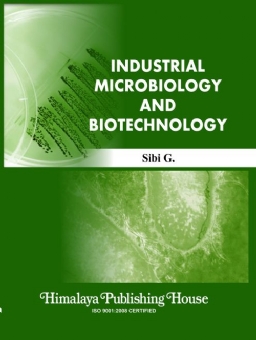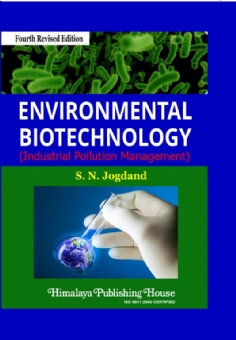Microbial products through fermentation, serves a market with strong prospects of growth and contributes significantly to the quality of life that we enjoy today. Industrial microbiology has its foundations based on knowledge of basic sciences and of technologies as well and has always been a cornerstone of ‘microbial biotechnology’. Scientific breakthroughs in high-throughput screening methodologies, in molecular genetics of industrial microbial strains, in systems biology, in directed evolution, metabolic engineering and modelling, in novel culture techniques, rapid sampling and sensor methodologies, in bioreactor design and in downstream processing, all have contributed to the growing interest and use and impact of industrial microbiology and biotechnology in the industry.
Industrial biotechnology encompasses the exploitation of the genetic and biochemical machinery of useful microorganisms (bacteria, fungi, yeasts and microalgae) and of higher cells for the synthesis of bulk and fine chemicals, pharmaceuticals, enzymes, biomaterials and energy. The integration of these topics has favored synergic and collaborative exchanges among microbiologists, biochemists, molecular biologists, bioengineers, chemical engineers, and food and pharmaceutical chemists, thus allowing new bioprocesses to rapidly surpass the walls of academic laboratories and become implemented on an industrial scale.
All the aforementioned developments have justified the timely publishing of a book on “Industrial Microbiology and Biotechnology”. This comprehensive and thoroughly up-to-date reference book includes thirty three comprehensive chapters; focus on all aspects, from historical to the latest developments in bioprocess technology. This book also aims at demonstrating the broad potential of industrial microbiology and biotechnology to produce chemically quite complex molecules and its impact on society; it may awake the mind of the researchers – to speed up the introduction of these clean bioprocess technologies in the industry and their products in society.
Contents –
1. Introduction
2. Primary and Secondary Metabolites
3. Pathways for the Synthesis of Primary and Secondary Metabolites
4. Product Development
5. Screening and Isolation of Microorganisms
6. Strain Improvement
7. Fermentation Media
8. Fermentation
9. Fermentor
10. Types of Fermentor
11. Upstream Processing and Downstream Processing
12. Production of Amino Acids
13. Production of Organic Acids
14. Production of Antibiotics
15. Production of Vitamins
16. Production of Enzymes
17. Production of Fuels
18. Production of Alcoholic and Non-Alcoholic Beverages
19. Production of Distilled Beverages
20. Production of Fermented Foods
21. Production of Microbial Food
22. Production of Microbial Polysaccharides
23. Production of Microbial Polyesters
24. Production of Microbial Insecticides
25. Microbial Transformations
26. Immobilized Enzymes
27. Immobilized Cell Systems
28. Plant Cell Bioreactors
29. Algal Culture Systems
30. Biomining
31. Biofilms
32. Biosensors
33. Intellectual Property Rights






